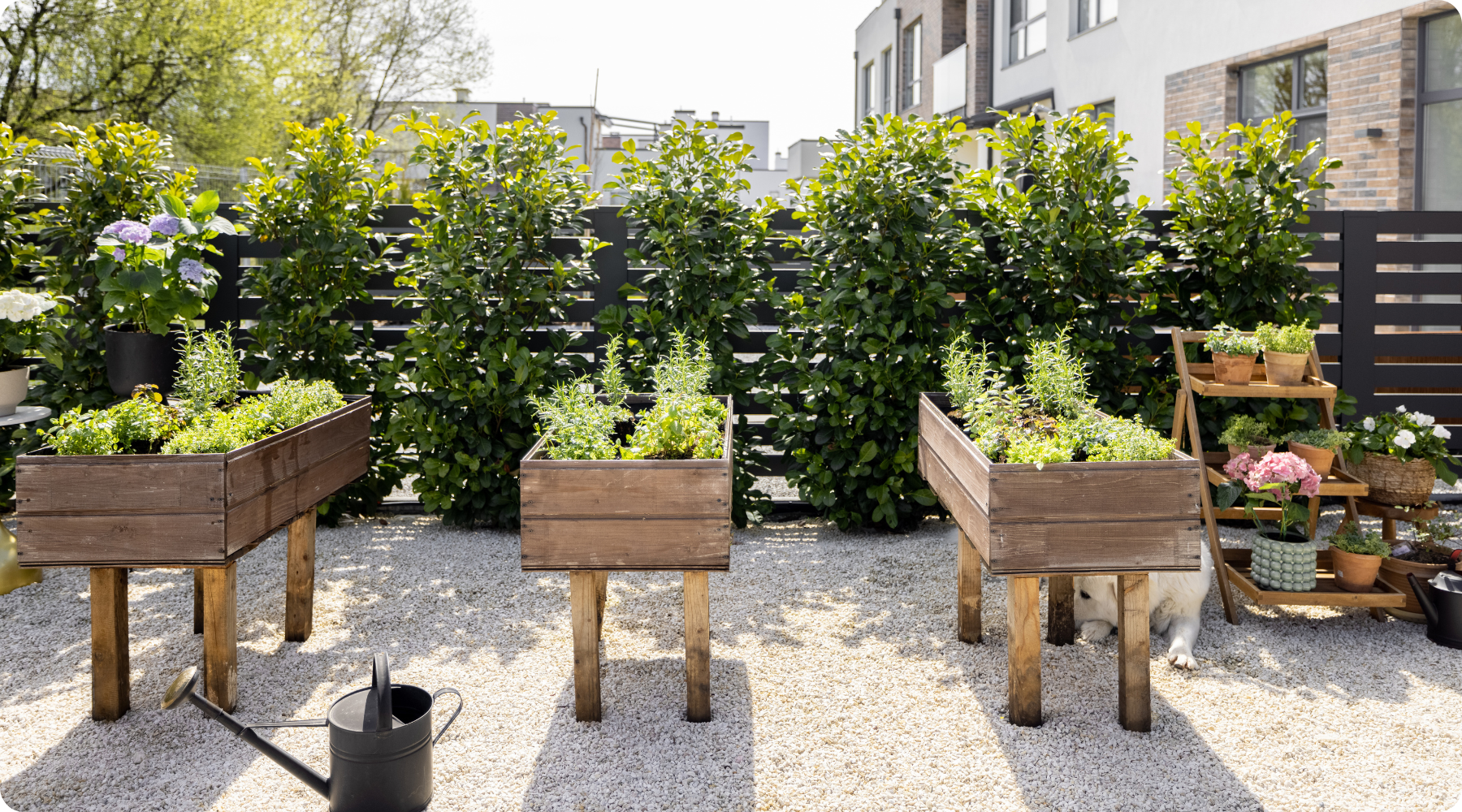
Growing a Sustainable Garden: Tips for Eco-Friendly Gardening
Sustainable gardening is all about growing a beautiful, productive garden while minimizing your environmental impact. By adopting eco-friendly practices, you can conserve water, reduce waste, and grow plants in harmony with nature. In this guide, we’ll share some simple yet effective tips for creating a sustainable garden that benefits both you and the planet.
1. Conserve Water
Water is a precious resource, and sustainable gardening involves using it efficiently. Here are some ways to conserve water while keeping your garden healthy:
- Collect Rainwater: Set up a rain barrel or water collection system to capture runoff from your roof. Use this water to irrigate your plants, reducing your reliance on municipal water.
- Use Mulch: Mulching your garden helps retain soil moisture, reducing the need for frequent watering. Organic mulch, like straw or compost, also adds nutrients to the soil as it breaks down.
- Drip Irrigation: Install a drip irrigation system to deliver water directly to the roots of your plants. This method minimizes water loss from evaporation and ensures that your plants get the hydration they need.
2. Reduce Waste
Sustainable gardening also means reducing waste and finding creative ways to reuse materials in your garden. Here’s how:
- Compost Organic Waste: Instead of throwing away kitchen scraps and yard waste, compost them to create nutrient-rich soil for your garden. Composting reduces landfill waste and provides your plants with a natural source of nutrients.
- Repurpose Containers: Use old containers like buckets, cans, or even old tires as planters. This reduces waste and gives your garden a unique look.
- Avoid Single-Use Plastics: Opt for durable tools and containers made from recycled or sustainable materials, and avoid single-use plastics wherever possible.
3. Choose Organic Methods
Growing your garden without synthetic chemicals is one of the best ways to support the environment. Organic gardening methods promote healthy soil, protect pollinators, and prevent chemical runoff.
- Use Organic Fertilizers: Choose organic fertilizers, such as compost, worm castings, or organic products like FoxFarm Big Bloom®, to nourish your plants without harmful chemicals.
- Natural Pest Control: Avoid chemical pesticides and use natural methods like companion planting, introducing beneficial insects (like live ladybugs), or using organic sprays made from neem oil or soap.
- Organic Seeds and Plants: Start your garden with certified organic seeds or seedlings to ensure that your plants are free from harmful chemicals.
4. Grow Native Plants
Native plants are a key component of sustainable gardening because they are adapted to your local environment. They require less water, fertilizer, and maintenance while providing important habitat for local wildlife.
- Benefits of Native Plants: They attract pollinators like bees and butterflies, help maintain local ecosystems, and are naturally resistant to local pests and diseases.
- Choose the Right Plants: Research native plant species that thrive in your region, and incorporate them into your garden. Native wildflowers, shrubs, and grasses are beautiful additions to any landscape.
5. Practice Crop Rotation and Companion Planting
Crop rotation and companion planting are simple yet powerful techniques that enhance soil health and prevent pest infestations naturally.
- Crop Rotation: Rotate your crops each year to avoid depleting the soil of specific nutrients. This also helps break pest and disease cycles that can build up when the same plants are grown in the same spot year after year.
- Companion Planting: Plant certain crops together to enhance growth and deter pests. For example, marigolds can be planted with tomatoes to repel aphids and nematodes, while beans can help fix nitrogen in the soil for heavy feeders like corn.
6. Build Healthy Soil
Healthy soil is the foundation of sustainable gardening. By nurturing the soil, you promote biodiversity and help plants grow stronger and more resilient.
- Add Organic Matter: Regularly add compost, manure, or mulch to your soil to enrich it with organic matter. This improves soil structure, increases its ability to retain moisture, and boosts microbial activity.
- Avoid Tilling: No-till gardening helps preserve soil structure and encourages beneficial organisms like earthworms to thrive. Instead of tilling, layer compost, mulch, and organic matter on top of the soil to keep it healthy.
- Cover Crops: Grow cover crops like clover or rye during the off-season to prevent soil erosion, suppress weeds, and add nutrients to the soil when they are tilled under before planting.
Conclusion
Growing a sustainable garden is not only good for the environment, but it can also lead to healthier plants and a more rewarding gardening experience. By conserving water, reducing waste, using organic methods, and nurturing your soil, you can create an eco-friendly garden that thrives year after year. With small changes, you can make a big impact on the health of your garden and the planet.
